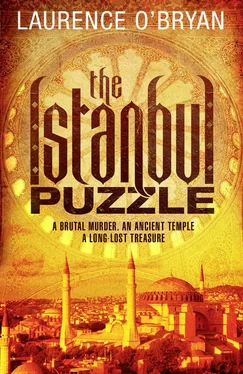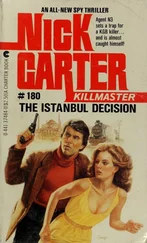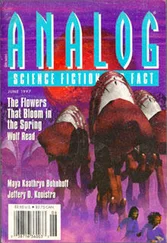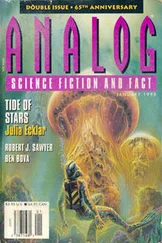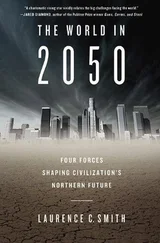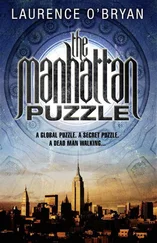1 ...6 7 8 10 11 12 ...18 ‘Our project has nothing to do with lost archives or lost letters.’
Why was he quizzing me about this stuff? Did the Turkish authorities really think our project was more than it seemed?
On the way up in the lift, the inspector smiled at me. It was the smile of a reptile as it sunned itself, while waiting for its prey to come within reach. He patted my shoulder as I climbed into the police car.
‘Take care. We wouldn’t want anything to happen to you in our beautiful city.’
I doubted very much that he gave a damn about what happened to me.
Chapter 9
In Whitehall, in central London, not far from Downing Street, Sergeant Henry P Mowlam was looking out the window. The office he was in had a spectacular view over the London Eye. It was rotating, imperceptibly, against a backdrop of blue sky and the puffiest clouds he’d seen all year. His own office didn’t have a view like this.
‘Sergeant Mowlam,’ said a voice.
He turned. The meeting had been organised by the Ministry of Defence. The conference room, with its dark panelled walls, held over twenty people. Just his luck to get called the second he’d got a proper look out the window.
‘Yes, sir.’
The brigadier general who was leading the meeting from the top of the shiny oak conference table looked around the room, as if wondering who had replied.
Sergeant Mowlam coughed. ‘How can I help?’ he said.
‘I was saying, Sergeant Mowlam, that we have some new chatter that’s just come in. Can you give us the latest on it?’
‘We’ve been picking up email and Twitter feeds this morning, sir. We discount most of this sort of stuff, but these messages are between the organisers of the demonstration planned for Friday. They are about supplies. Shall I read them out?’
The general nodded.
Chapter 10
The driver sped through the still-busy streets. I was in the back again. Inspector Erdinc had stayed in the hospital. His other colleague had disappeared. My forehead was pounding as if I had a migraine.
A lot of things had been stirred up in me in the last few hours. There were so many links to the past in this city. So much was different here.
My fists were clenched as we sped onto a wide, low bridge. It had black chest-high iron railings on each side. Below, eel-black water slid past. On the far side of the bridge the shadow of a hill loomed, crowned with the spot-lit outlines of Topkapi Palace, the palace of the Ottoman Sultans, and the dome of Hagia Sophia. The dome was glowing with yellow light, and with its four minarets it looked like an oil painting come to life. Above, stars shone weakly through a haze. We were crossing the Golden Horn.
I asked the driver how soon we would get to the hotel. He didn’t answer. I had only one word of Turkish – Merhaba, hello – so I decided to shut up.
He stared at me in his rear-view mirror. Then he touched one of those blue and white circular evil-eye charms they hang everywhere in Turkey. When we stopped at the traffic lights on the far side of the bridge he spoke.
‘Your friend, he played a dangerous game, no?’
His eyes were fixed on the rear-view mirror.
I looked over my shoulder. There was a car with blacked-out windows behind us.
‘It shouldn’t have been dangerous,’ I said.
He tutted, as if he didn’t believe me. The lights changed. We sped on, cutting across two lanes in a way that would have spelled disaster in London.
He turned the radio on. A wild song filled the car, part Arab lament, part Latin dance beat. Then he turned the radio down, as if he’d remembered he shouldn’t be playing music while on official business.
Then we were rumbling up a cobbled street and after another tight turn, with the minarets and dome of Hagia Sophia looming over us, we stopped in front of a parchment- yellow building. It was an Ottoman era, five-tier, wedding-cake of an edifice. It dominated one whole side of a narrow and steep side street.
Alek had picked the hotel, he’d said, because it was in the oldest part of Istanbul, near the summit of the hill Hagia Sophia was on. That was where the original Greek colony had been founded by someone called Byzas hundreds of years before Alexander the Great’s family even owned a single olive tree.
The site had been chosen for reasons any child would understand. It was easily defendable. It had water on three sides; the Sea of Marmara, the Bosphorus, and the Golden Horn.
Not far from the hotel were the remnants of the old Roman Hippodrome, a stadium Ben Hur might have raced in.
The Roman imperial legacy here was only part of the history of the place though. Within strolling distance of the hotel was the palace and harem of the Ottoman sultans, rulers of an empire which at one time stretched from Egypt almost to Vienna.
I stepped out of the car. Old stone walls and sun-bleached Ottoman-era buildings lined the street. The hotel brooded above me. It felt strange, unsettling, to be following in Alek’s footsteps, seeing things he’d seen only a few days before.
I stood for a moment watching the police car pull away. I could smell jasmine on the warm air, hear laughter, voices. I touched the yellow plaster of the hotel wall as I climbed the stairs from the street.
As soon as I entered the building I was hit by a blast of air conditioning. The smiling lady behind the glass-topped ultra-modern reception desk had the blondest hair I’d seen in a long time. She was friendly, and very sympathetic, after I gave her my name and told her I was a colleague of Alek’s.
‘We are all so sorry about what happened. We heard from the police that Mr Zegliwski had an accident. It’s terrible. He was so nice. What happened to him? Do you know?’
‘Yes.’ I didn’t feel like telling her though, so I added. ‘And thanks. I appreciate your concern.’
She smiled, then held a finger in the air, as if she was trying to remember something. After a moment, she said, ‘There’s something here for Mr Zegliwski.’
She turned, scanned the pigeon holes that filled the wall behind her until she found what she was looking for – a large brown envelope. She held it out in front of her triumphantly, to show me what was written on it. Mr Zegliwski.
I took the envelope. As I walked to the lift I squeezed it gently. It felt like there were a few sheets of paper in it, and something else at the bottom.
A man in a puffy black jacket stared at me from an oversized leather sofa at the far end of the reception area. He gave me the creeps. I imagined his corpulent boss entertaining some underage hooker or three upstairs.
As I waited for the lift to reach the fifth floor, I slid my finger under the flap of the envelope and looked inside. A silver key-ring, with one of those USB memory sticks attached, lay in the bottom of the envelope. I pulled it out, looked at it, then put it in my pocket. The only other thing in the envelope were some photos.
I almost dropped them on the white marble floor of the hallway as I juggled my room card and bag. It wasn’t until I was inside that I got a chance to look at the photos properly.
One of them was of a woman with long black hair and a winning smile. Alek had clearly been busy. Something tightened in my chest. Did she know what had happened to him? My shoulders hunched, as the weight of his death bore down on me. There was one thing I was going to promise myself, and Alek. Whatever happened, I would find out who had done this.
I steadied myself, looked at the photos again.
Two didn’t fit with the rest. One was of a crumbling floor mosaic. Debris lay scattered around it. The other was of the inside of a brick-lined tunnel. It had an arched ceiling, sloping downwards. A yellow marble plaque hung on the wall near the top of the tunnel. I could just about make out what was carved on it; scales with a sword lying across its pans.
Читать дальше
